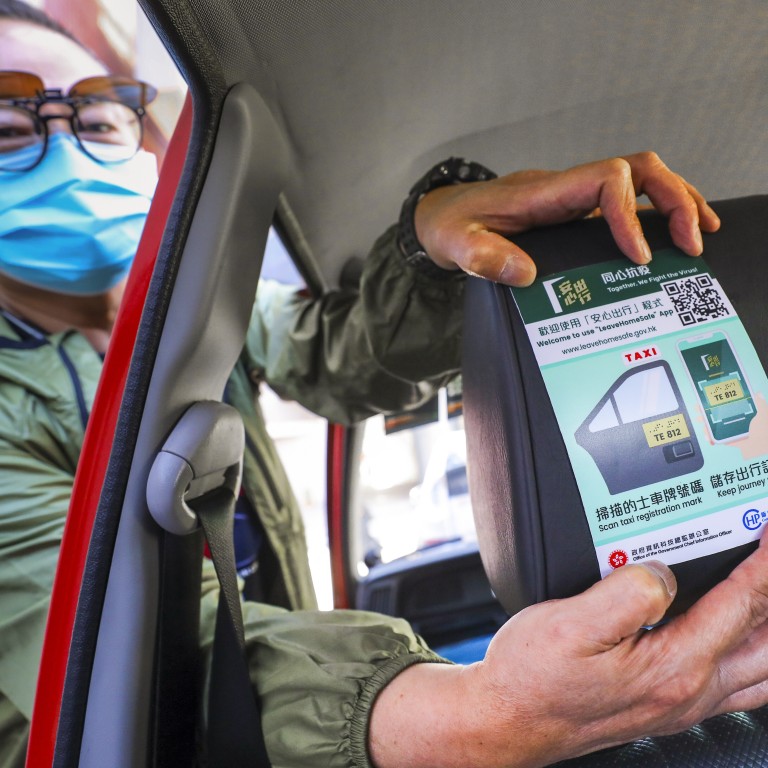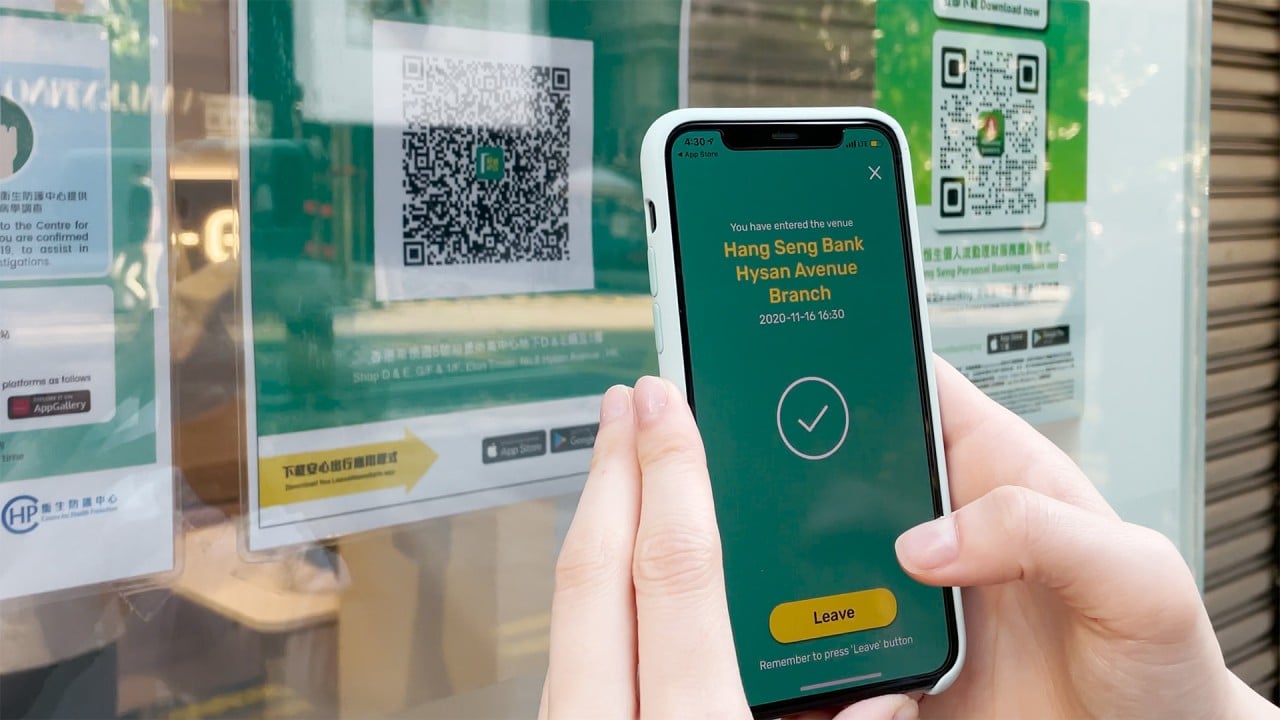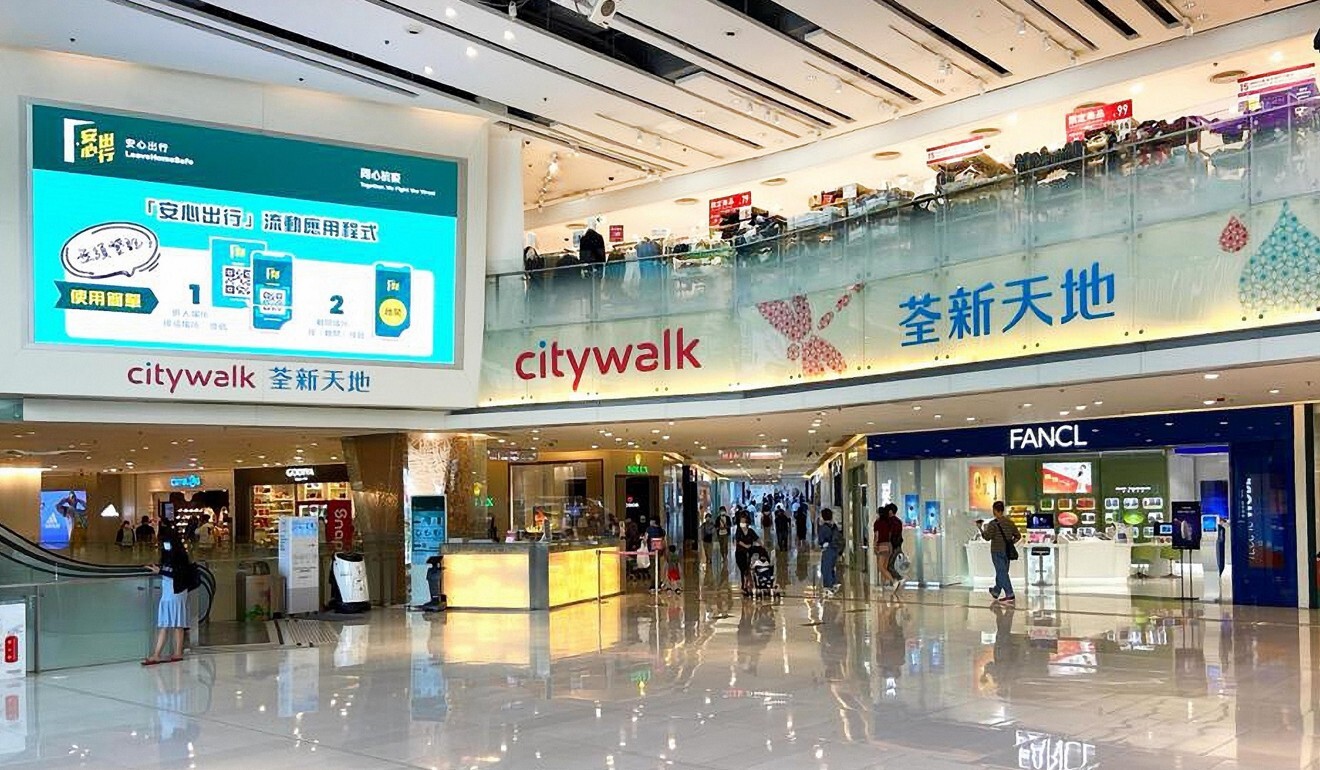
Privacy, usage issues mark lukewarm response to Hong Kong’s Covid-19 contact-tracing app ‘Leave Home Safe’
- Mobile app launches on Monday, with some complaining it is not user-friendly, while bar industry largely welcomes implementation
- Users can scan QR code at more than 9,000 locations and on 18,000 taxis to log their movements voluntarily
Public response to the Hong Kong government’s newly launched Covid-19 contact-tracing app has been lukewarm, with usage difficulties and privacy fears among top concerns.
The “Leave Home Safe” mobile app became available for download on Monday, allowing users to scan a QR code at more than 9,000 locations, including 6,000 public and 3,000 private venues, and on identification labels in 18,000 taxis to log their movements voluntarily.
The app will also notify users if a person confirmed with Covid-19 has recently visited those places.

03:25
How Hong Kong’s new coronavirus contact-tracing app works
But reaction from the public has been mixed, with the Post observing that only a few passers-by noticed the QR codes at various locations in Causeway Bay.
At Hang Seng Bank in Jardine’s Bazaar, a retiree – who only gave her name as Irene – and her friends struggled to download and use the app.
“The elderly are not very tech-savvy so it was quite confusing with so many different QR codes on the door,” she said. “If there’s nobody to help, older people won’t know how to use it.”
Irene said she would continue to use the app but pointed out that it would only be handy if many places joined the scheme.
“It’s problematic because a lot of people will forget where they’ve been, which makes it difficult to do contact tracing. With so many asymptomatic carriers of the virus, the government should make it compulsory for everyone to check in at places they have visited,” she said.
There’s also the issue of privacy and not many people will want to use it unless it is enforced
Mechanical engineer Kenneth Fung, 46, who was at Hong Kong Central Library, said he did not think the app would be beneficial to him and had no plans to use it.
“I think it’s very annoying because I’d need to scan my location everywhere. Besides, I always go to the same places every week so I will remember where I’ve been,” he said. “There’s also the issue of privacy and not many people will want to use it unless it is enforced.”
Officials said the venue check-in data would be encrypted and stored only in users’ mobile phones for 31 days.

But others such as Paulina, a 50-year-old Indonesian entrepreneur, who only learned about the app on Monday, remained sceptical.
“I always try to be very careful about disclosing my personal information,” she said. “I feel relatively safer in Hong Kong compared to other places. At least people are wearing masks and trying their best to maintain social distancing. I’ll only consider using the app if the Covid-19 situation gets worse.”
Meanwhile, Jessie Lai, 29, a former clerk who is currently unemployed, said she would consider downloading the app if it proved to be helpful with contact tracing in the following weeks.
“If it’s easy to use and widely available at different restaurants, convenience stores and wet markets, then it’ll be better.”

The government does not disclose addresses of the 3,000 private premises, such as shops and restaurants, where people can scan the code.
Anthea Cheung So-may, director at Lan Kwai Fong Association, which represents about 100 bars, restaurants and other businesses, said Hong Kong’s bar industry, which had been hard hit by the pandemic, largely supported the scheme.
“It’s free to join and there is a centralised registration system to help set up individual QR codes for different locations,” she said. “It’s user-friendly for customers and gives them a guarantee. It’s a way to show them that we’re following the rules.”
Social-distancing rules tightened amid eight imported Covid-19 cases in Hong Kong
Although the government has not set a target for how many people they hoped would install the app, Secretary for Food and Health Professor Sophia Chan Siu-chee told local radio that authorities would monitor its effectiveness and the public’s response.
“If everyone uses the app, it will enhance the alertness and self-protection levels of residents,” she said.

